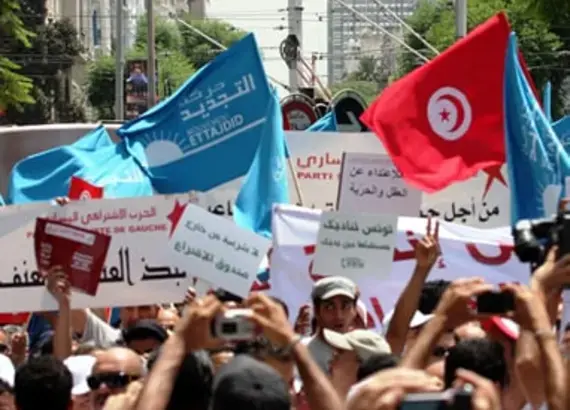
Success Story
Tunisians Want Politicians to Address Jobs, Security as First Democratic Elections Approach
Constituent assembly elections in Tunisia next month – the first competitive poll in the country’s history – will mark a significant milestone in the political transition following the overthrow of autocratic President Zine El Abidine Ben Ali in January. One of the new legislators’ tasks will be to draft a new constitution.
Throughout the transition, political leaders have struggled to meet citizens’ expectations for economic development and improved security, which have eclipsed the original calls for democratic freedoms. The Oct. 23 vote provides a platform for political parties to show their commitment to addressing citizens’ priorities.
But that challenge may be becoming more complicated. Focus group research conducted by NDI across the country shows a widening divide between citizens and decision-makers. The focus groups, which coincided with the end of the voter registration period in August, captured citizen sentiment about political leadership and expectations for the constitution drafting process.
The results show that citizens are frustrated with politicians and increasingly skeptical about a new constitution. Among the key findings:
- Unemployment, security and corruption are still the most important issues for Tunisians, who see politicians debating issues that do not relate to these daily concerns. Expectations for the future have become more measured as the transition proceeds and economic hardship persists.
- Political jockeying in Tunis has led many to doubt whether the country is on track to achieve the goals of the revolution. Cooperation and coalition-building by political actors is seen as a possible solution to these challenges.
- There is widespread ambivalence about the election commission’s ability to manage the election and concern about low voter registration. Tunisians largely view the presence of observers, both domestic and international, as a means to judge the credibility of the election.
- Tunisians find it difficult to differentiate the large number of political parties and to distinguish their ideologies and platforms. People are particularly concerned by allegations of foreign funding for parties and whether elected political leaders will be held accountable to voters in the future.
- Opinions are divided on whether to adopt a new constitution or revise the existing one, with articles detailing the presidency’s powers of highest concern. The role of religion in the constitution remains a divisive issue. Expectations for the constitution-drafting process are low, with many Tunisians predicting that their role as citizens will be limited to electing members of the constituent assembly.
As the elections rapidly approach, the Institute is sharing the full research findings with Tunisian political parties and civil society organizations.
Related:
Published Oct. 4, 2011



